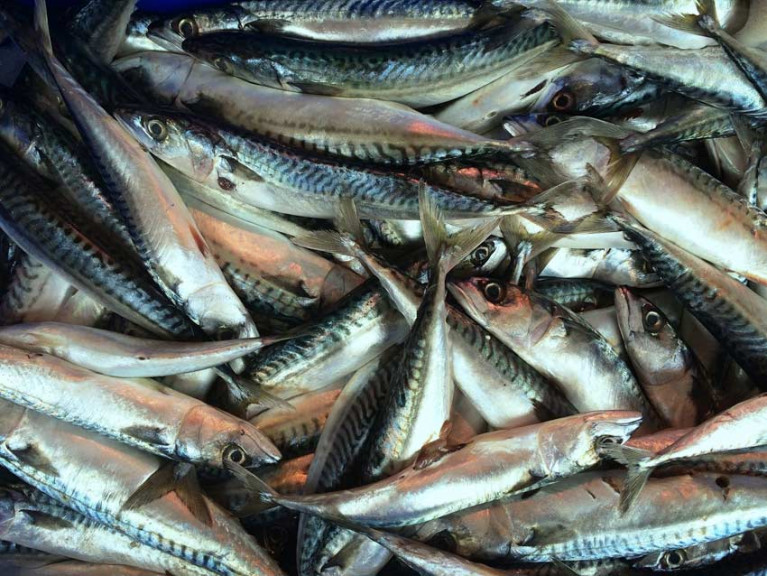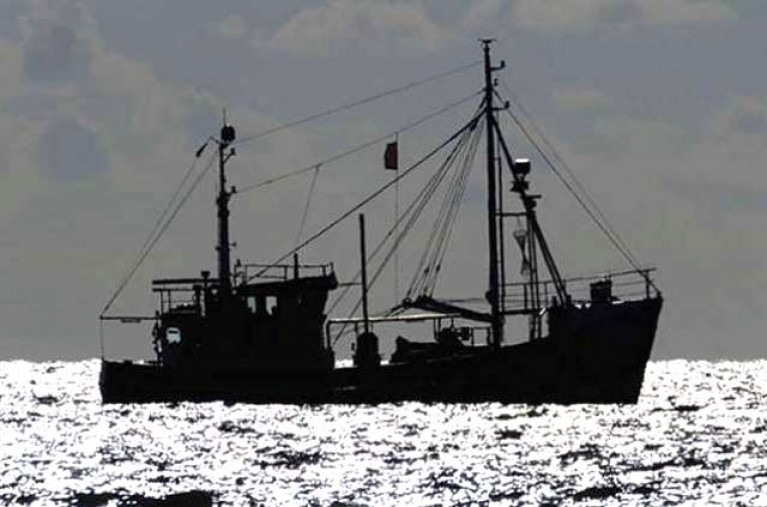Displaying items by tag: Killybegs Fishermans Organisation
Irish Fishing Group Demands Mackerel Quota Transfer as Compensation Over ‘Poor’ Brexit Trade Deal
Negotiations on a Brexit trade agreement concluded today (Thursday 24 December) with what European Commission president Ursula von der Leyen described as “a good deal”.
News of the agreement has been generally welcomed across the majority of Irish businesses and representative groups — with the notable exception of the Killybegs Fishermen’s Organisation, which says the deal fails the Irish fishing industry.
And the body is demanding compensation in the form of a transfer of quotas in mackerel — Ireland’s most lucrative catch — from other EU fishing states.
“We cannot stand idly by and allow decades of investment in developing a successful enterprise, to be sacrificed by the shape of this very poor deal,” KFO chief executive Seán O’Donoghue said in a statement.
“In spite of a seismic effort to redress the imbalance of the proposed deal in recent days, not enough has changed and our highly developed mackerel fishery stands to lose out dramatically.
“While the full detail of the text is not yet available, it will require very close examination and analysis. Make no mistake — we will be seeking compensation from our EU colleagues to put right this grievous wrong.
“We won’t accept this. Moreover, we fully expect the Irish Government to deliver the requisite compensation in the form of transfer of mackerel quota from the other EU coastal states which pro rata, have seen a much less severe impact on their respective mackerel fisheries.”
As reported in The Irish Times, Taoiseach Micheál Martin acknowledged that fishing communities would be disappointed by today’s outcome.
“I believe the agreement reached today is the least bad version of Brexit possible, given current circumstances,” he said.
“I know that, more than others, our fishing communities will be disappointed with the outcome. But compared with the prospect of ‘no deal’, which would have seen them completely excluded from British waters, the negotiators have worked to minimise the damage.”
The Irish Times has more on the story HERE.
Taoiseach Criticised Over Penalty Points System by Killybegs Fishermen's Organisation
Taoiseach Micheál Martin has been accused of having “conveniently ignored” a Supreme Court ruling on penalty points for commercial fishing by signing in a new system late last week.
Killybegs Fishermen’s Organisation (KFO) chief executive Séan O’Donoghue condemned the move on RTÉ Radio 1’s Morning Ireland today.
Ireland has been under pressure from the EU to introduce an administrative system of penalties for fishing offences, and Mr O’Donohue says the industry supports this in principle.
However, Mr O’Donoghue said that the system signed in by Mr Martin last Friday (Aug 28) by statutory instrument does not allow for the right of appeal, except through a court of law, and penalties can still remain on a licence if the case is thrown out, he said.
A Fianna Fáil motion annulling a statutory instrument (SI) on penalty points, and calling for a fairer system was carried by 80 votes to 54 on May 29th, 2018.
Twelve days before, a letter of formal notice of infringement proceedings had issued by the European Commission, due to Ireland’s failure to introduce the EU-wide system under the Common Fisheries Policy.
The Government had claimed it has also threatened to suspend EU Maritime and Fisheries Fund (EMFF) monies.
The 2018 motion to annul the penalty points SI, proposed by the then Leas-Cheann Comhairle and Fianna Fáil Marine spokesman Pat “The Cope” Gallagher, was supported by the Labour Party, Sinn Féin, the Social Democrats, Green Party and seven Independent TDs.
Mr Gallagher had said then that the proposed legislation “focused too much power with the Sea Fisheries Protection Authority” and gave it a “domineering role in the various processes”.
A High Court ruling in 2014, upheld by the Supreme Court three years later, had found the penalty points legislation to be unconstitutional in not allowing for fair procedures.
This system administered by the SFPA provided for eventual suspension of fishing licences and ultimately for complete withdrawal of the licence depending on how many points a licensee incurs.
This morning, Mr O’Donoghue said Mr Martin, who is acting minister for agriculture, food and marine, had “conveniently ignored” the Supreme Court ruling.
Other EU member states afforded the option to challenge the imposition of points “using lesser forms of proof”, but Irish fishermen were being denied this in this system, Mr O’Donoghue said.
The Government has said fishermen who remain within the law have nothing to fear from the new system.






























































